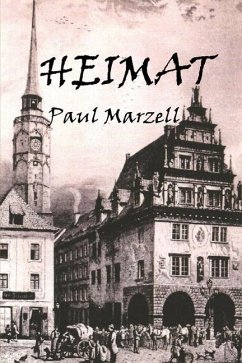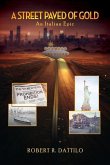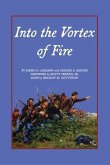Heimat By: Paul F. Marzell Matthias Schmidt expected to return to Neisse, Germany, as an example of American success within a few years after his departure in 1929 when he followed thousands of other European emigrants to America. He left his mother, girlfriend, sisters, friends, and the familiarity of his Heimat. During train connections in Berlin's Lehrter Bahnhof, Matthias and his friend Josef saved an American diplomat from the tracks with two other unlikely travelers from Neisse. Their heroic act created a friendship that would sustain them and the diplomat through broken promises, misconceptions of the American dream, the Great Depression, Prohibition, World War Two, and the Cold War. Josef Turner joined his friend Matthias on a whim. Edo Rabinowitz, a Jew, escaped growing nationally accepted anti-Semitism; and Feliks Bartol, an ethnic Polish teenage farmer, was sent by his family because their farm could not support him and his brothers. The diplomat, Peter Rust, would be a benevolent manipulator in his rescuers' lives. As letters from Matthias's mother praised Hitler and the Nazi regime's improvement of Germany's economy and restoration of national pride, Matthias began to question his commitment to America. But Germany's invasion of Poland in 1939 severed contact with his family and sent him and his friends on separate paths to a shipyard to build vessels to carry destruction to their Heimat, the US Army to fight in the Pacific, and later with the Polish resistance, Germany's Wehrmacht to invade France and Russia, and the Nuremberg trials to bring Nazi war criminals to justice.
Hinweis: Dieser Artikel kann nur an eine deutsche Lieferadresse ausgeliefert werden.
Hinweis: Dieser Artikel kann nur an eine deutsche Lieferadresse ausgeliefert werden.








